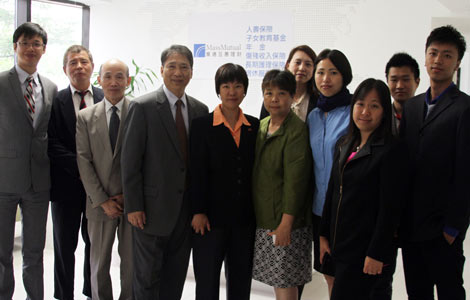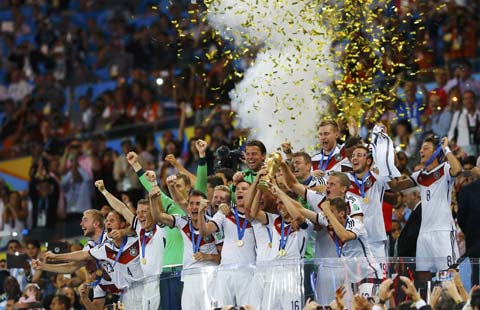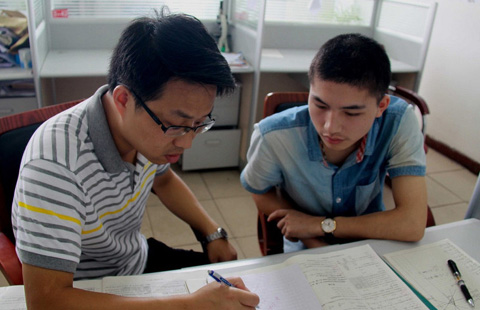In a first, BRICS includes political issues
Updated: 2014-07-16 14:23
(China Daily USA)
|
||||||||
The Fortaleza summit of the BRICS leaders is a milestone in the sense that for the first time the meeting of the group's five members is no longer a business forum, but is branded with strong political elements.
Global political issues — including unrest in Iraq and Ukraine and cyber surveillance around the world by the US National Security Agency — are part of the summit discussions.
The political aspects are reflected in the Fortaleza Declaration issued by the leaders on July 15.
The proportion of political elements has greatly outnumbered those of previous years, and the focus on them is reflected in the summit's agenda, which for the first time included political coordination. The very first part of the private discussions among the leaders is on global governance and regional crises. The second part is economic and financial cooperation.
Observers said the inclusion of the political agenda would give developing nations an increasingly united voice and, therefore, more clout on major global issues.
To that end, the sixth BRICS summit has embarked on an era that positions the group for a bigger role in both the political and economic sphere of the world, and competes with Western countries for an equal voice in the international arena.
The BRICS account for 29.6 percent of the world's territory, and more than 42 percent of its population. Last year, the members' combined GDP was 21 percent of the world's total. Despite slowing growth, the members' economies have expanded twice as fast as developed countries.
After building strong economic bondage, BRICS wants a new international political architecture which serves their long-term strategic interests. And that interest lies in strengthening the rule of international law and the United Nations' lead role in the international system, which can further ensure a sound economic environment for those emerging economies.
The members may not share the same positions on every hot topic, but collectively they have great potential to boost their demand for greater cooperation in political and cultural sectors.
The group has laid a sound foundation for regular political dialogue and communication, as it has developed the practice of mutual consultations and joint actions in international organizations, especially at the UN.
Yet the BRICS is still a very young group, and is operating in a global economy that remains dominated by developed countries.
That recent Trans-Pacific Partnership agreement that the United States is negotiating with 11 other countries throughout the Asia-Pacific region and the Transatlantic Trade and Investment Partnership negotiations between the European Union and the US have not included one participant from the BRICS. That's a vivid demonstration that the leading emerging economies which might pose a challenge to the Western-dominated trade system have been sidelined in the rule-setting games of global trade.
If the BRICS countries succeed in their ongoing economic structural adjustment and maintain momentum in growth, the bloc will play a bigger role in the global economy and have a more solid foundation to build political momentum on the global stage.
Contact the writer at wujiao@ chinadaily.com.cn
(China Daily USA 07/16/2014 page3)

 SPINEXPO puts Chinese textiles front and center
SPINEXPO puts Chinese textiles front and center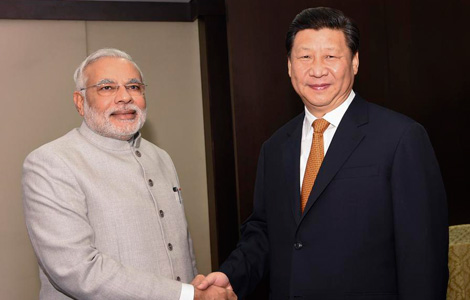
 Xi meets with India's new PM
Xi meets with India's new PM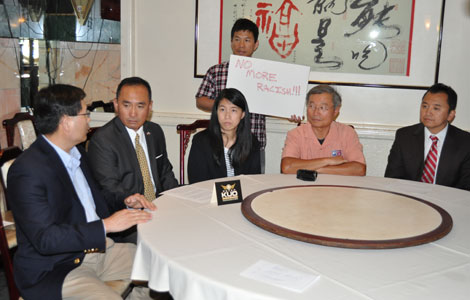
 Chinese call for Fox host to resign
Chinese call for Fox host to resign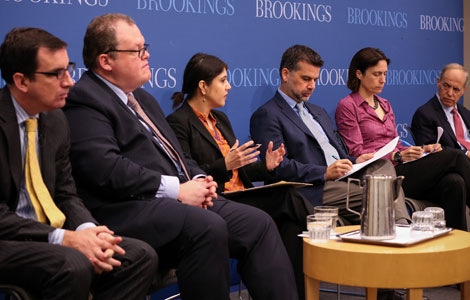
 BRICS nations don't like West dominance: Experts
BRICS nations don't like West dominance: Experts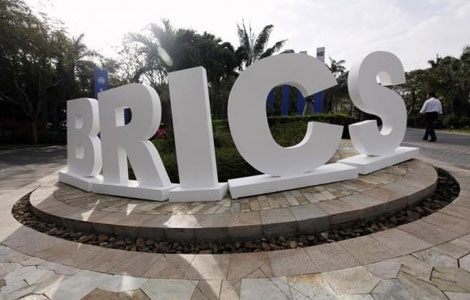
 Shanghai most likely HQ for BRICS bank
Shanghai most likely HQ for BRICS bank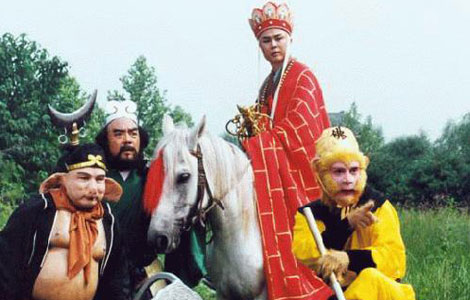
 AMC to produce Chinese tale Journey to the West
AMC to produce Chinese tale Journey to the West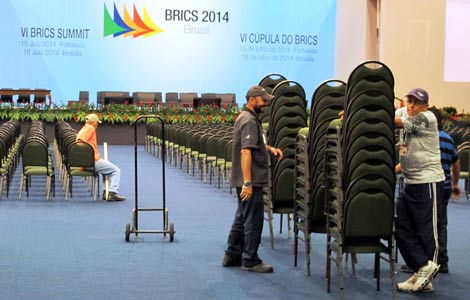
 Brazil makes ready to play host to BRICS 'family'
Brazil makes ready to play host to BRICS 'family'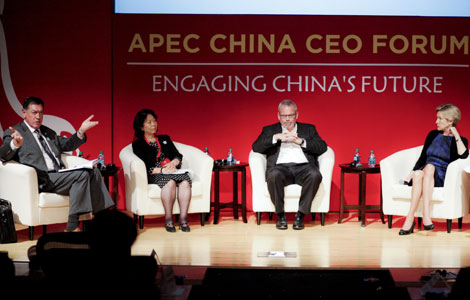
 Forum attracts APEC leaders
Forum attracts APEC leaders
Most Viewed
Editor's Picks

|

|

|

|

|

|
Today's Top News
Henry Kissinger undergoes heart surgery
BRICS bank to be headquartered in Shanghai
Xi attends sixth BRICS summit
Xi, in Brazil, talks with Obama over the phone
China gains WTO support in its challenge to US tariffs
Emerging nations looking for more diversified global leadership: experts
Energy, commodities pivotal for China, Latin America
Xi arrives in Brazil for BRICS summit
US Weekly

|

|
